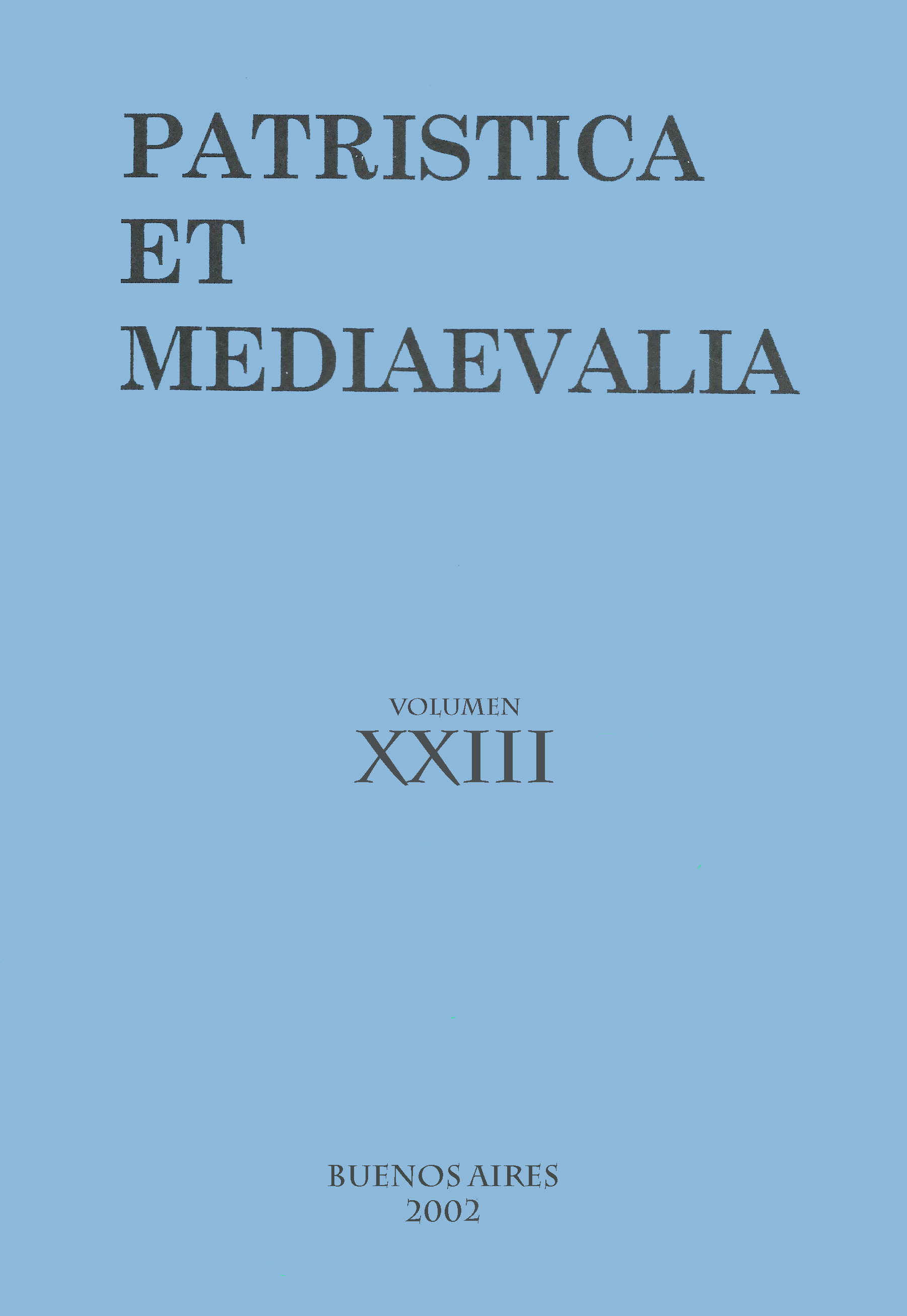Reseñas
Abstract
RAIMUNDUS LULLUS, Ars brevis, trad. ALEXANDER FIDORA. W. KOCH / M. GLASER / F. ALBRECHT BORNSCHLEGEL, Literaturbericht zur mittelalterlichen Epigraphik. BERNOLD VON KONSTANZ, De excommunicatis vitandis, de reconciliatione lapsorum et de fontibus iuris ecclesiastici (Libellus X), ed. DORIS STÖCKLY. MARTÍN KAUFHOLD, Deutsches Interregnum und Europäische Politik. Konfliktlösungen und Entscheudungsstrukturen. 1230-1280. A. FIDORA / A. NIEDERBERGER, Von Bagdad nach Toledo. Das “Buch der Ursachen” und seine Rezeption im Mittelalter. KLAUS RAHNERT, Entmachung der Zeichen? Augustin über Sprache. JÜRGEN MIETHKE, De potestate papae. Die päpstliche Amtskompetenz im Widerstreit der politischen Theorie von Thomas von Aquin bis Wilhem vom Ockham. GIOVANNA CERESOLA, Fantasia e illusione in S. Agostino dai Soliloquia al De Mendacio. CRISTOFORO LANDINO, De vita contemplativa et activa (¿El intelectual o el político?, trad. SILVIA MAGNAVACCA. MARIO SANTIAGO DE CARVALHO, A novidade do mundo: Henrique de Gand e a metafisica da temporalidade no seculo XIII.Downloads
1. The authors who publish in this magazine accept the following conditions:
-
They retain the copyright and grant to the magazine the right of the first publication, with the work registered under the Attribution-ShareAlike 4.0 International License that allows third parties to use what is published as long as they mention the authorship of the work and the first publication in this magazine.
-
They can make other independent and additional contractual agreements for the non-exclusive distribution of the version of the article published in this magazine (eg. include it in an institutional repository or publish it in a book) provided that they clearly indicate that the work was first published in this journal.
-
They are allowed and recommended to publish their work on the Internet (for example on institutional or personal pages).
2. AutoArchive Conditions. Authors are allowed and encouraged to distribute post-print electronic versions of their manuscripts because it promotes their circulation, a possible increase of quotation and a major reach among the Academic community. Color RoMEO: blue.













